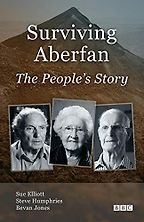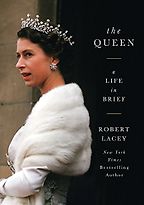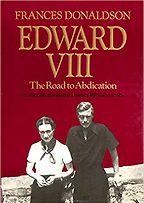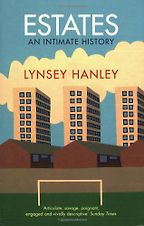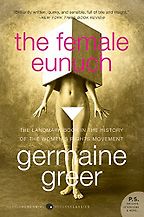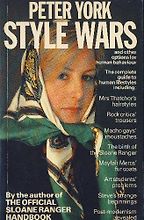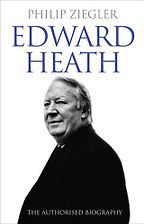The Crown Season 3: History Books about the Period
Last updated: June 25, 2023
Season 3 of the Netflix series The Crown takes the story of the British royal family from 1964 until 1976. This was a period of great social and economic change for the United Kingdom and many aspects of national life traditionally associated with the monarchy—empire, patriotism, social hierarchy, Christian values—were undermined, abandoned or called into question.
The 1960s and 1970s witnessed the final rolling up of the British Empire in the West Indies and in Africa and the emergence of a vibrant pop culture, not just in music, but in all the arts, facilitated by the democratic medium of television. It was a golden age of satire and comedy. Deference to conventions and hierarchies of all kinds were deemed passé.
By the late 1960s, the post-war political consensus was breaking down and things only got worse in the 1970s as industrial action, inflation, immigration and broader social issues—sexual equality and sexual liberation most obviously—polarised the country. Despite the radical change, the monarchy appeared to remain above the social revolutions and political chaos raging around it, and largely untouched by the collapse of deference. Some young people may have pogo-ed to the Sex Pistols' mocking “God Save the Queen” in 1977, but millions more of all ages took to the streets that year to celebrate the Queen’s Silver Jubilee with unfeigned enthusiasm.
Below is our selection of nonfiction books that give a good sense of the period The Crown, Season 3 is set in. If you're interested in British royalty in general, we also have a collection of interviews with royal experts who discuss books on the British royal family. You can also read our interview with royal biographer Robert Lacey on the Queen.
Surviving Aberfan: the People's Story
The third episode of series three of The Crown opens with the Aberfan disaster of 1966, when a slag heap on a hill above the Welsh mining village collapsed onto a school, killing 116 children and 28 adults.
This book is an oral history in which people from Aberfan tell the story of how the tragedy unfolded and how the community survived the trauma and rebuilt itself.
“Brown makes Margaret an interesting, complex figure, and he pushes the traditional form of biography by contending with both a life, and the spectacle of a life.It raises fascinating questions about formation of public impressions and somehow in creating this multi-faceted form, is also profoundly empathic.” Read more...
The Best Biographies: the 2019 NBCC Shortlist
Elizabeth Taylor, Biographer
The Queen
by Robert Lacey
In the new series of The Crown, the Queen is seen visiting the Duke of Windsor (as Edward VIII became on his abdication) just a few weeks before his death. Although the series does take some liberties with historical fact, this meeting did take place and the Duke did make considerable efforts to get off his sickbed to greet his niece-monarch as a subject should. This event is described in Robert Lacey's The Queen.
Edward VIII
by Frances Donaldson
This is the definitive biography. France Donaldson’s is the one which best captures the ambiguous spirit of Edward VIII.
Estates
by Lynsey Hanley
Lynsey Hanley, the author of Estates, was brought up on a council estate in the 1960s. Familiar to British citizens and residents but perhaps not to all, council estates are publicly funded housing in the UK for those who can’t afford to buy or rent accommodation privately. After the Second World War, there was a massive increase in the building of council houses. By the end of the 1970s, a third of all housing in the UK was council housing. In Estates, Hanley tells her story of life on the estate and reflects on the successes and failures of council housing as a social experiment. This book tells the story of how the Queen’s poorer subjects lived in the 1960s and 1970s. It's a fascinating and valuable historical testimony.
“When I read Germaine Greer back in 1971, I was just delighted, because here, suddenly, was somebody saying all the things we felt in our bones but didn’t dare say. And she said it with humour and outrageousness and I loved that. I think Germaine has written many important books. One of the ones that has been most neglected is The Obstacle Race, about the fortunes of women painters. I adore that book. The Female Eunuch is a very exciting book. It was to me. It made a lot of sense to me and I loved her witty treatment of these issues.” Read more...
The best books on Women in Society
Erica Jong, Novelist
Style Wars
by Peter York
This book, written by Peter York, the author of the Sloane Ranger Handbook, is based on a series of articles he wrote for Harpers & Queen, the UK glossy magazine, observing the social and cultural scene of the 1970s. It’s a good antidote to the picture most people have of Britain during the decade, of a country inexorably going to the dogs. York paints a picture of a Britain, or at least a London, where cool people in architecture, fashion and pop music were having a great time and where money was not a problem.
Edward Heath
by Philip Ziegler
"Edward Heath became prime minister in 1970, after somewhat unexpectedly winning the general election of that year."
